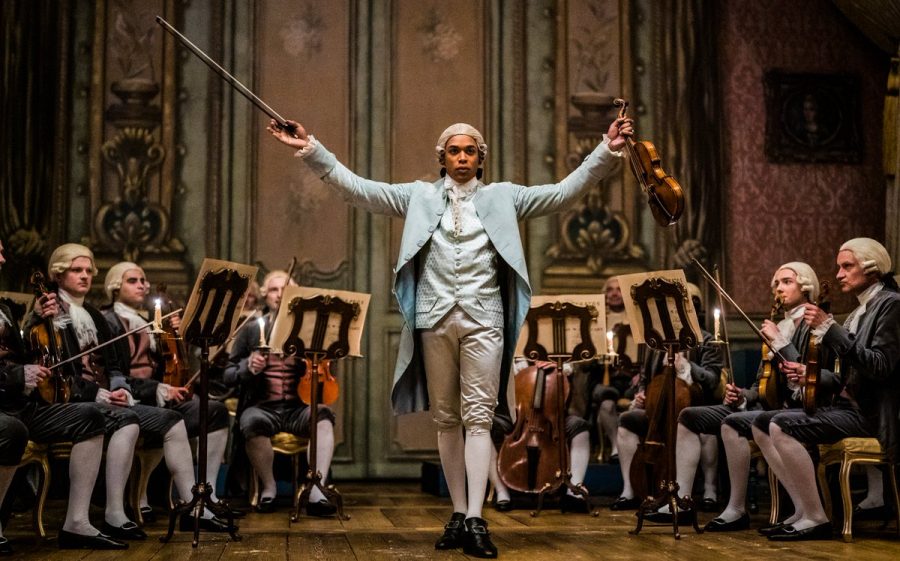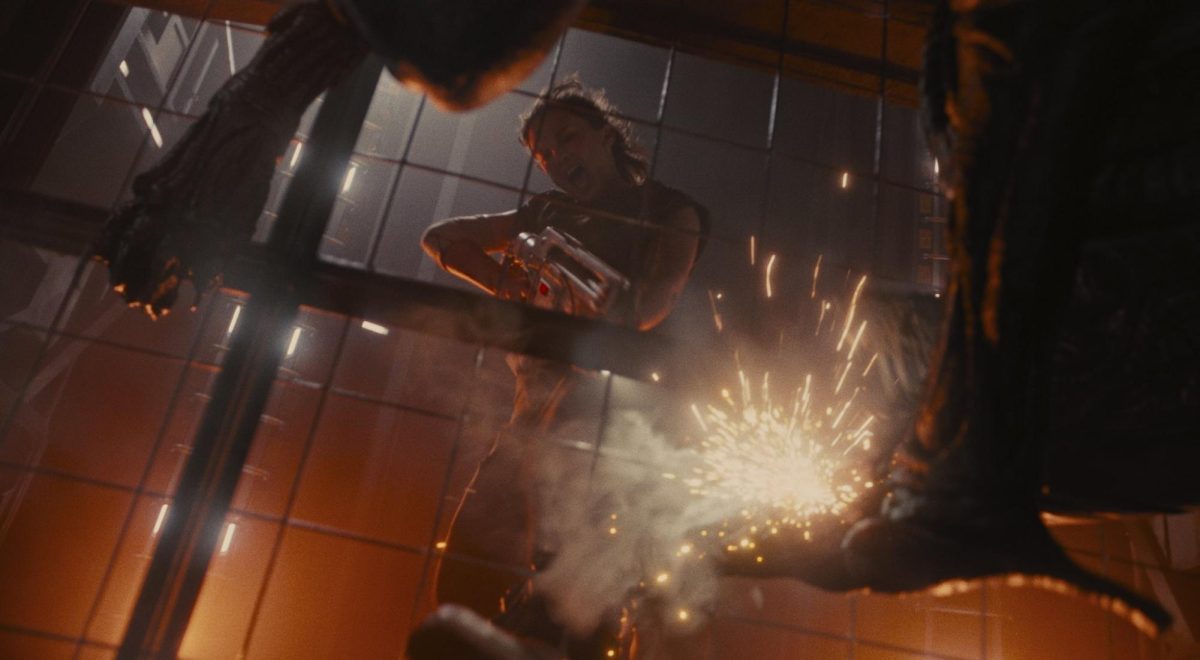“Chevalier”: Highlighting historical racism in France
As a fascinating musical, historical and theatrical movie, “Chevalier” resurrects the memory of an incredible yet forgotten composer.
May 17, 2023
Skilled fingers fly across the neck of a violin as the notes and chords fill the opera house with melodious sounds. Suddenly, the performance is interrupted by a young Marie Antoinette as she orders to shoot. As the hitman lifts his gun, a crowd of supporters tackles him, saving the life of Joseph Bologne — the face of the French Revolution. Bologne runs out of the opera house and extricates himself from the fatal situation. After centuries of being forgotten by history books, “Chevalier” finally brings the incredible true story of this artist-turned-revolutionary into the spotlight.
“Chevalier” follows the life of Bologne, a legendary Black composer in 18th-century France played by Kelvin Harrison Jr. The film explores the riveting and chaotic setting of the late 1700s French Revolution through Bologne’s unique perspective. Aside from being entertaining, the film expertly spotlights Bologne’s struggles as a biracial man amidst the societal and political pressures of the time.
Throughout “Chevalier,” director Stephen Williams strives to create a historical film experience that avoids whitewashing history by illuminating the stories that society sweeps under the rug. Williams attempts to explore the corrupt side of famous leaders such as Marie Antoinette and Napoleon Bonaparte in his quest to portray history in a new light. The film illustrates the struggle of taking back one’s power in a society that gives them none.
“Chevalier” opens with an intense violin battle between Bologne and Mozart, paying homage to Bologne’s musical genius and his hard-earned nickname, “Black Mozart.” The fast-paced opening scene doesn’t hesitate to show Bologne’s confidence and arrogance as he strides powerfully onto the stage before beginning to play.
However, Bologne did not always have this nickname and a successful career. The Chevalier de Saint-Georges grew up on a slave plantation in the French colony of Guadeloupe as the son of an African slave and a French plantation owner. When he turned eight, his father enrolled him in a prestigious music boarding school in Paris where he excelled in all his schoolwork and became the best fencer in Paris. The movie beautifully depicts Bologne’s sheer determination, which led him to defy adversity and become an acclaimed fencer, equestrian, violinist and composer. On the big screen, Bologne is successful, smart and capable in the face of insurmountable odds — a refreshing difference from how cinema typically portrays African-Caribbean men.
Without the magnificent array of performances, the powerful message of “Chevalier” would never have come to life. Harrison was especially impactful with his role, playing the violin himself during scenes where Bologne displays his talent. Lucy Boynton, who plays Marie Antoinette, displayed energy and youthfulness that is distinct from the solemn way Antoinette is depicted in other motion pictures. This profundity of performance brings a type of excitement to the screen that is rare in period pieces.
“Chevalier” also introduces Bologne’s romantic interest, Marquise Marie-Josephine, played by Samara Weaving, whom he tries to recruit as the tenor of his opera. Weaving and Harrison have authentic chemistry that impeccably portrays the suspense of their star-crossed love.
The movie notably portrays the journey of acceptance that comes with being biracial, and the idea of not knowing which race one belongs to. Despite the 200-year-old setting of “Chevalier,” the overarching theme of finding oneself is still incredibly relevant today. The film exhibits a much-needed representation of reconnection with one’s heritage as Bologne’s mother, played by Ronkẹ Adékoluẹjo, plays a crucial role in Bologne’s journey toward accepting his identity.
The movie points out how the systemic racism rooted in the 18th-century French aristocracy was unavoidable, even in front of a successful triple threat destined to be as famous as Mozart and Beethoven. After Bologne’s death, Napoleon Bonaparte destroyed all of his musical works as a final act of imperialism.
As a fascinating musical, historical and theatrical movie, “Chevalier” resurrects the memory of an incredible yet forgotten composer. Spearheaded by a director seeking to shift the landscape in historical filmmaking, the film illustrates a perfect revival with charming acting and spectacular music.










